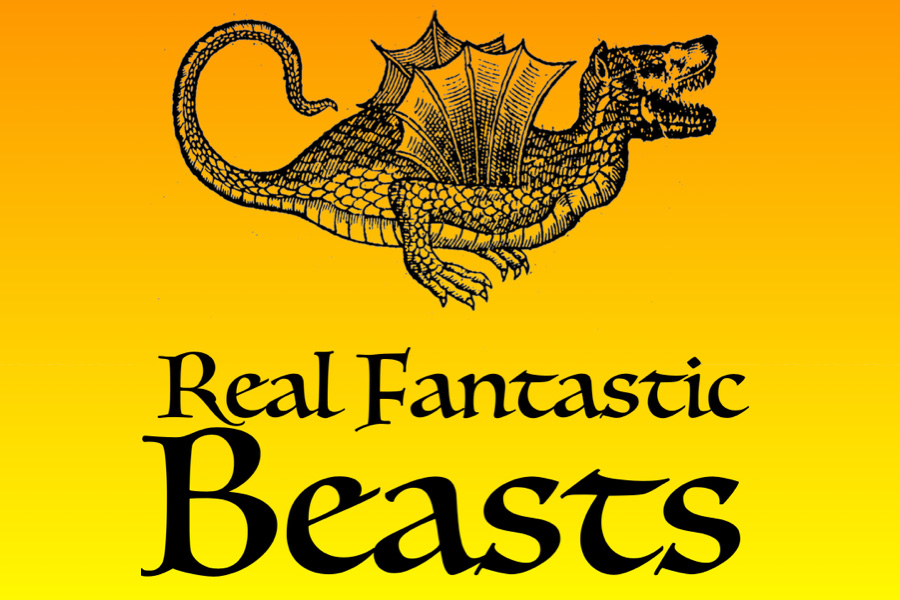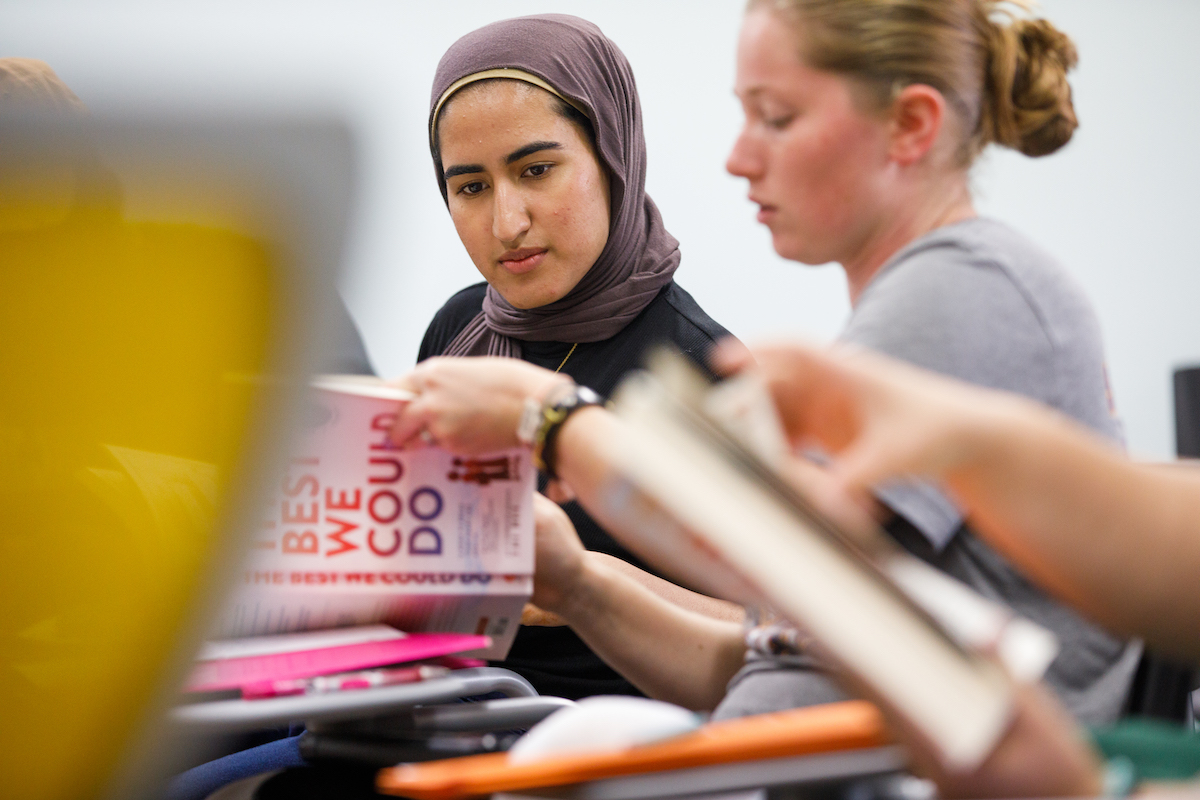MacInnes Hooks Audience for ‘Real Fantastic Beasts’ Podcast
Related Programs
Related Posts
Connect With Us
November 22, 2022
By Jake Weber
At last count, there were roughly a bazillion podcasts in cyberspace, but you only need to look at a random handful to see that a lot of the content is, well, kind of unbelievable. And for English professor Ian MacInnes, that’s the point of “Real Fantastic Beasts.”
In just the first three episodes, the podcast has discussed sailors who can’t tell a whale from an island, were-tiger anatomy, the best way to domesticate a man/tiger/scorpion hybrid, and Louis XIII’s double row of teeth (as far as MacInnes knows, only the last one is real).
“Right now, I’m working on an episode about pelicans that will probably come out in February,” MacInnes said. “We’ve got more than seven episodes recorded, and we’ll just keep going!”

The podcasts are drawn from poetry, literature, travel reports, paintings and drawings, personal correspondence, religious writings and other sources, from the Middle Ages through the Renaissance. MacInnes and Alexa Sand (a professor of art history at the Utah State University) use cultural and scholarly context to explain the fascinating — and often funny — ideas about the “fantastic beasts” that were quite real to medieval and Renaissance Europeans.
The podcast, MacInnes said, is “just widening the audience for things we think are both entertaining and worth knowing.”
The show is already gathering a fan base, and MacInnes says that listener questions, suggestions, and guest experts will help drive future episodes. He’s happy to have found an audience interested in the wacky notions of earlier Europeans but notes that the podcast is also a little bit about current thought, too.
“Our secret goal is to use listeners’ curiosity and love of the fantastical to get them to think differently about ‘animality,’” he explains. “We live in an era of mass extinction and ecological exhaustion, and we profit from the harm inflicted on other animals. It is important to bring the perspective of history, art, and literature to these issues. And we want as big an audience as possible.”
In various courses, MacInnes’ students have built a working Greek chariot and a poetry-dispensing vending machine, mapped an uncharted (to them) island in Lake Michigan, contributed original research to the global Map of Early Modern London project, and attended Zoom class as sock puppets. His newest educational exploration can be found on Apple Podcasts, Spotify, Stitcher, Amazon podcasts, iHeartRadio, and Google podcasts by searching for “Real Fantastic Beasts.”
